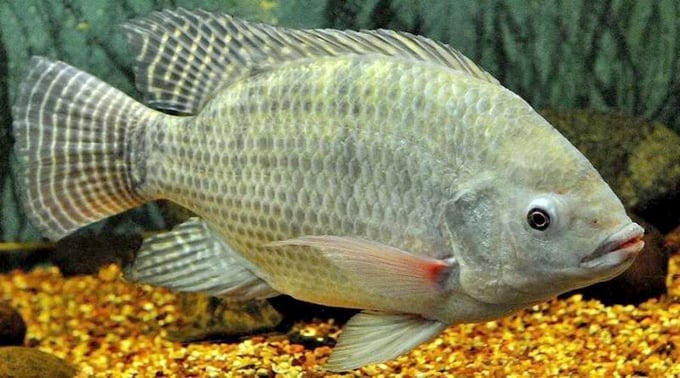December 10, 2025 | 09:50 GMT +7
December 10, 2025 | 09:50 GMT +7
Hotline: 0913.378.918
December 10, 2025 | 09:50 GMT +7
Hotline: 0913.378.918
Brazil’s Official Gazette has published an announcement from the Ministry of Agriculture, Livestock and Food Supply (MAPA) that officially lifts the suspension on the import of Vietnamese tilapia, according to the Vietnam Trade Office (Brazil). This is one of the most tangible and early results both parties have achieved in implementing the 2025–2030 Action Plan. The plan’s objective is to facilitate the comprehensive and substantive development of the Strategic Partnership between the two countries and positively contribute to the development efforts and the interests of both peoples.
MAPA concluded that the risk of importing tilapia fillets is negligible, as the likelihood of exposure is considered insignificant, based on an Import Risk Analysis (IRA) conducted following warnings from Brazil’s fisheries sector in 2024 regarding the potential introduction of the TiLV virus through fish imports, including tilapia. Whole tilapia are typically subject to management measures, and the likelihood of exposure is extremely low.
Meanwhile, MAPA observed that Brazil revised the procedure for establishing health requirements for importing fresh, chilled, or frozen fish and gutted fish from aquaculture intended for human consumption in 2020. These requirements are technically sound and consistent with the Aquatic Animal Health Code of the World Organization for Animal Health (WOAH).
In February 2024, MAPA announced a provisional suspension of fish imports from Vietnam, including tilapia, to reevaluate its current sanitary inspection procedures in response to the potential risks of Tilapia Lake Virus (TiLV) transmission. TiLV is a highly contagious and infectious disease in fish. The decision also cited industrial practices deemed “non-compliant with Brazil’s health standards.”

Brazil lifts ban on Vietnamese tilapia imports. Photo: NNVN.
The Vietnam Trade Office in Brazil has stated that the forthcoming negotiations between Vietnam and Brazil will focus on the final technical steps necessary for Brazil to permit the import of all types of pangasius fillets by internationally recognized standards and practices. In exchange, Vietnam will allow Brazilian cattle products to enter its market. In the near future, negotiations will persist regarding Brazilian bovine offal and a variety of Vietnamese shrimp (including whole, non-heat-treated shrimp).
The Trade Office determined that the reopening of the Brazilian market for Vietnamese tilapia and the ongoing discussions on pangasius present significant possibilities for Vietnamese seafood exporters in light of the urgent need for Vietnamese exports to identify alternative markets and the global uncertainties. This development is expected to boost overall export turnover, help gradually balance the trade deficit, and raise bilateral trade to USD 15 billion by 2030.
However, meeting the technical requirements to reopen the market is merely the initial phase. Seafood processing facilities eligible for export to Brazil must proactively update, study, and rigorously adhere to all relevant regulations during production and processing to export to the Brazilian market.
Translated by Linh Linh

(VAN) Lang Son agricultural products are upgrading planting-area standards, increasing deep processing, and expanding linkages to move toward sustainable exports.

(VAN) Despite numerous challenges, Vietnam's key seafood products are maintaining strong momentum, setting the stage for full-year exports to potentially reach USD 11 billion.

(VAN) The signing of a protocol between Viet Nam and China on the export of fresh jackfruit represents a significant milestone in agricultural trade cooperation between the two countries.

(VAN) On November 27, the Ninh Binh Department of Agriculture and Environment and the Institute for Green Growth Research organized a training course on greenhouse gas inventory for businesses.

(VAN) China’s cooking oil is suddenly flooding into India. It all comes down to a soybean surplus that Beijing doesn’t quite know what to do with.

(VAN) An Giang promotes supply-demand connections, standardizes quality and builds value chains, creating a foundation for sustainable bird’s nest development and aiming to expand exports.
/2025/11/24/5339-4-nongnghiep-075331.jpg)
(VAN) Recently, the conference on 'Sustainable Fisheries Linkage Chain - Tilapia for Export' took place in Tien Hai commune, Hung Yen province.